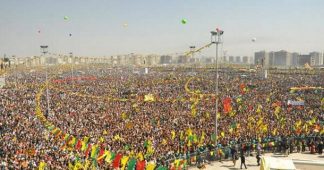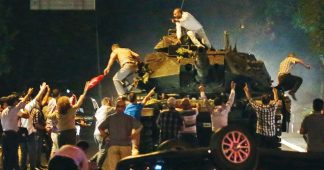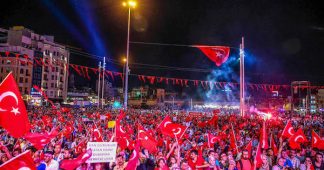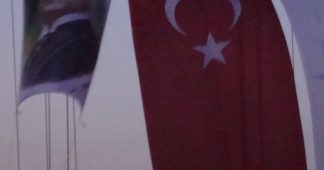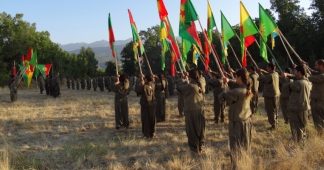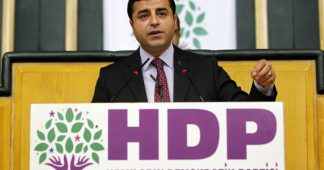In December 1970 there was an attempt to impose on Italy the ‘authoritarian solution’. It was a strange coup d’état, so subtle and secretive that when it failed many denied, as they still do, that it had even taken place. Prince Junio Valerio Borghese, the architect of the coup, is one of the most controversial figures of Italian post-war history.
Called the Black Prince because of both his illustrious ancestors, who included popes and cardinals, and his extremist political ideology, Junio Valerio Scipione Ghezzo Marcantonio Maria Borghese was born into an old Sienese noble family in Rome on June 6, 1906. After his parents divorced, he spent his childhood following his diplomat father around to postings in China, Egypt, Spain, France and England. He was educated in London and then at the Royal Naval Academy in Livorno, from which he graduated in 1929. In September 1931, he married Daria Wassilievna, a Russian countess, in Florence; they had four children.
During the Second World War, Borghese commanded the infamous Decima Flottiglia MAS, a body of assault troops which was responsible for raids on the British fleet in Alexandria and which, after 1943, was savage in its treatment of Italian partisans. Borghese was later tried as a war criminal and sentenced to twelve years’ imprisonment. On his (very early) release, he became President of the neo-Fascist party, the Movimento Sociale Italiano, before founding the Fronte Nazionale, a pseudo-military organization to ‘build a dam against red terror’.
Coming in the aftermath of the Piazza Fontana bombing, and the subsequent polarization of society, the coup itself was not entirely unexpected. 1970 had witnessed reforms which, insufficient to satisfy any but the most moderate on the left, were however adequate to unnerve the traditionalists on the right: regional government had been introduced in the spring, and in May, the Statuto dei Lavoratori, a workers’ charter, guaranteed various workplace rights. Most importantly, days before the Borghese coup, the bill legalizing divorce (which had been passed in November 1969) became law. The coup took place on the night of 7 December 1970 (it was known as ‘Tora Tora,’ in memory of the Japanese attack on Pearl Harbor on the same date in 1941). Borghese had prepared a proclamation to read to the Italian public:
“Italians, the hoped-for political change, the long awaited coup d’état, has taken place. The political formula which has been used by governments for 25 years and has carried Italy to the brink of economic and moral ruin, has finally been abandoned… The armed forces, the forces of order, the most competent and representative men of the nation are with us and we can reassure you that the most dangerous adversaries – those who wanted to sell our homeland to the foreigner – have been rendered inoffensive… We raise the glorious tricolor, and invite you to shout with us our irrepressible hymn of love: Italia! Italia! Viva l’Italia!”
Two hundred Forest Guards left their Cittaducale base in the northeast of Rome and made for the city center in a convoy armed with sub-machine guns and handcuffs. Members and former members of a parachute regiment remained at their base under the command of Sandro Saccucci (later to become a deputy for the MSI) awaiting orders. Across the country, other groups were ready for action in Lombardy, Veneto, Tuscany, Umbria and Calabria. The Ministry of the Interior was occupied, and a stash of arms removed (counterfeit weapons were later found in their place). Suddenly, however, just as the Guards were about to enter the state television studios (RAI), they were met by two unknown men, who ordered them to retreat. The operation was called off, with the bizarre explanation that it was raining too heavily.
The abortive coup was quickly dismissed as nothing more than the work of crackpot eccentrics, ‘a jolly get-together among old comrades’ according to General Vito Miceli, head of SID (the secret services) and another future MSI parliamentarian. The idea that there had been an attempted coup was ridiculed, indeed there was barely any evidence, bar those counterfeit weapons at the Ministry of the Interior, to suggest that it had even taken place. Gradually, however, the seriousness of the coup attempt became clear. General Miceli, it was revealed, had known about the coup well in advance, as had the army Chief of Staff, who was ready to provide additional weapons.
Indeed, within months another subversive organization, Wind Rose, had been created by veterans of Borghese’s abortive coup. It was an alliance of senior army and intelligence officers hoping, again, to take over the reins of government. ‘The objective,’ proclaimed one of their early manifestos, ‘is to fight against the political, unionist and government braggarts, and against all those who cooperate and sustain the chameleons of this putrid democracy.’ Borghese died in exile (under strange circumstances), in Spain, in 1974, the same year in which Miceli was arrested for his part in that other, related organization, Wind Rose. Those who had taken part in the Borghese coup were accused of ‘armed insurrection against the state,’ but by 1984 all had been acquitted on appeal. As ever in Italy, there was not one conviction following the crime.
